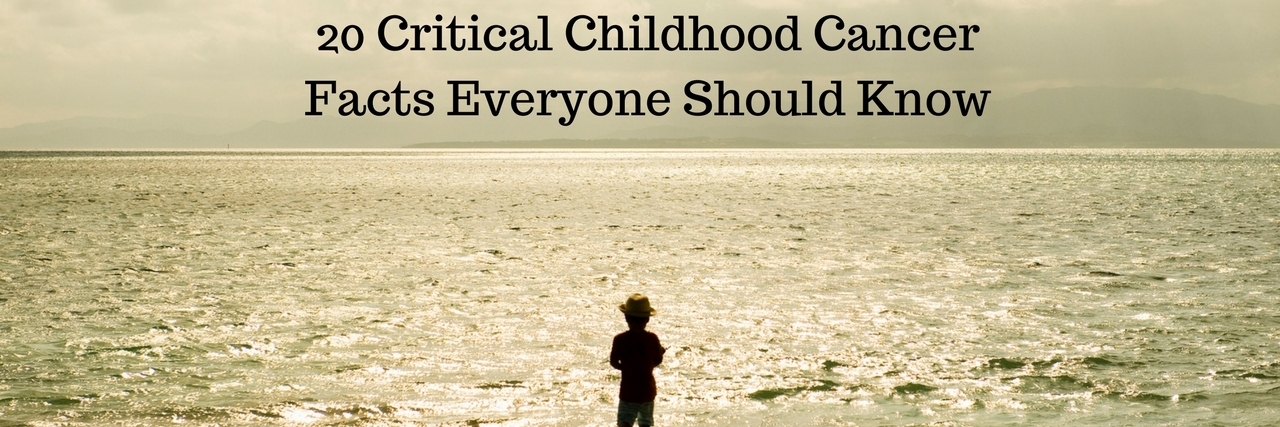20 Critical Childhood Cancer Facts Everyone Should Know
September is Childhood Cancer Awareness Month, a time to bring attention to the need for funding for pediatric research, and to shine a spotlight on the thousands of children whose families are told “your child has cancer” each year. Although it’s a month-long event, the devastating reality of childhood cancer is something that should be remembered every day of the year.
We partnered with Rally Foundation for Childhood Cancer Research, a nonprofit that empowers volunteers across the country to raise awareness and funds for childhood cancer research, to ask readers to share their opinion on what they think are the most critical childhood cancer facts everyone should know.
Here are their answers:
1. “Pediatric cancers are different than adult cancers and therefore, need their own research.” — Ellen G.
2. “Because of lack of funding and research, the treatments used to treat childhood cancers are usually very old and very harsh, therefore causing many problems in the future. Over 90% of all childhood cancer patients endure lifelong health issues cause by treatment.” — Shiri M.
3. “Cancer is the number one cause of death by disease among children.” — Matthew K.
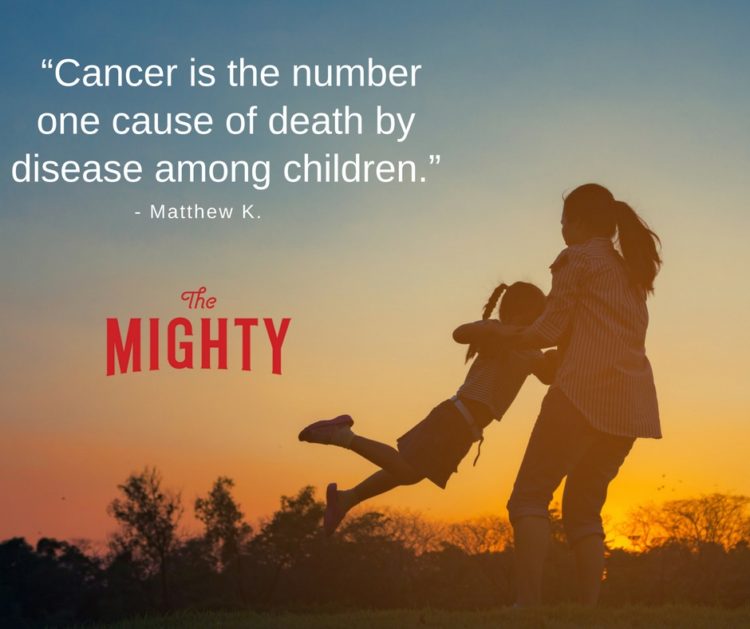
4. “Children who have any type of brain tumors have the highest risk of not making it during their treatment. The reason for this is that children’s brains are not fully done growing, which means the tumor does as well. The most dangerous brain tumor is the one that won’t stop growing. The treatment options they have to endure almost always stunts their growth as well. They will need growth hormones to get them caught up with their peers. Pediatric brain cancer is the second most common cancer, next to leukemia. Brain tumors account for about one out of four cancers.” — Donna F.
5. “Cancer does not discriminate.” — Tina M.
6. “The battle doesn’t end when treatment ends, and cancer affects the entire family.” — Michelle B.
7. “Childhood cancers are under and late diagnosed. Parents and doctors need to know the warning signs: fever, bone or joint pain (growing pains should never be experienced in daytime hours), swelling or lump in the belly, headaches, sudden weight loss, vision problems, excessive bruising, night sweats, swollen lymph nodes, trouble walking, vomiting and fatigue” – Marilyn. F.
8. “Only four percent of research funds are specifically for childhood cancer. Four percent!” — James P.
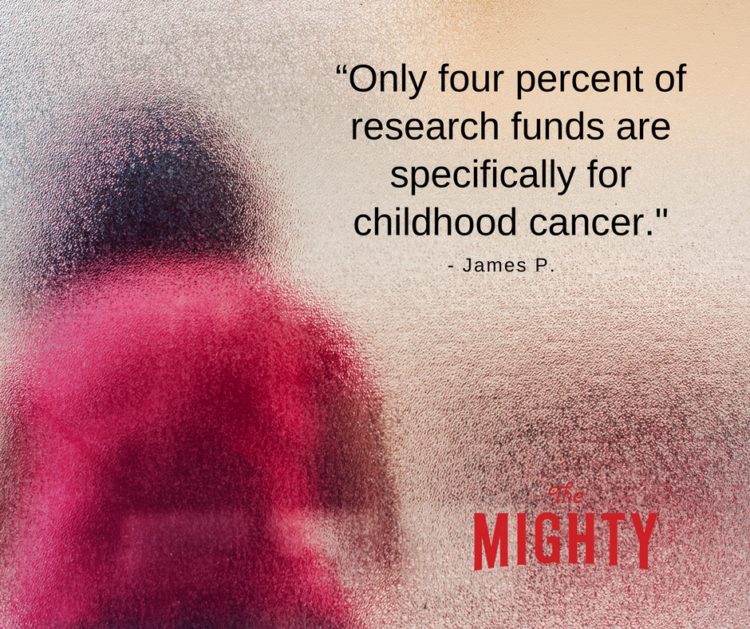
9. “There could be significant later effects of chemo on childhood cancer survivors. It is important for childhood survivors to be aware of any changes in their bodies and report them right away, and to be closely monitored throughout their lives. Doctors and researchers are just now starting to study the toll life-saving drugs take on growing bodies. I am a teenage leukemia survivor who was diagnosed with metastatic breast cancer at 32. Since I have no genetic mutations and no family history of breast cancer, my doctors feel my breast cancer is a secondary cancer caused by chemo during the end of puberty.” — Rebecca S.
10. “I am going to go a different route here because you all have listed some amazing ones! Changes in routines disrupt day-to-day functioning of siblings. Siblings of children with cancer are at risk for emotional and behavioral difficulties, such as anxiety, depression and post-traumatic stress disorder. Symptoms of post-traumatic stress disorder are well-documented for parents whose children have completed cancer treatment.” — Shannon G.
11. “Two-thirds of kids with cancer will experience late effects from treatment (this include heart and lung disease, infertility, learning disabilities and secondary cancers). This is why the public needs to understand that kids get different kinds of cancer than adults and need different research in order to find better treatment protocols with less long-term side effects and eventually a cure for cancer! The federal funding for adult cancer research is 96% with kids only receiving 4%. #MoreThan4” — Heidi M.
12. “Quote from [name’s] brother during her treatment: ‘I’m so glad I am turning 12 tomorrow because then I can always go to see her in the hospital.” And from her older brother: ‘I’m just praying she doesn’t relapse before I get my driver’s license.’ Siblings are the unsung heroes and casualties in the childhood cancer world.” — Amy S.
13. “Cancer kills more children than AIDs, asthma, diabetes, cystic fibrosis and congenital anomalies combined.” — Donna C.
14.“Only three new drugs have been approved to treat childhood cancers in the last 20+ years.” — Amanda H.
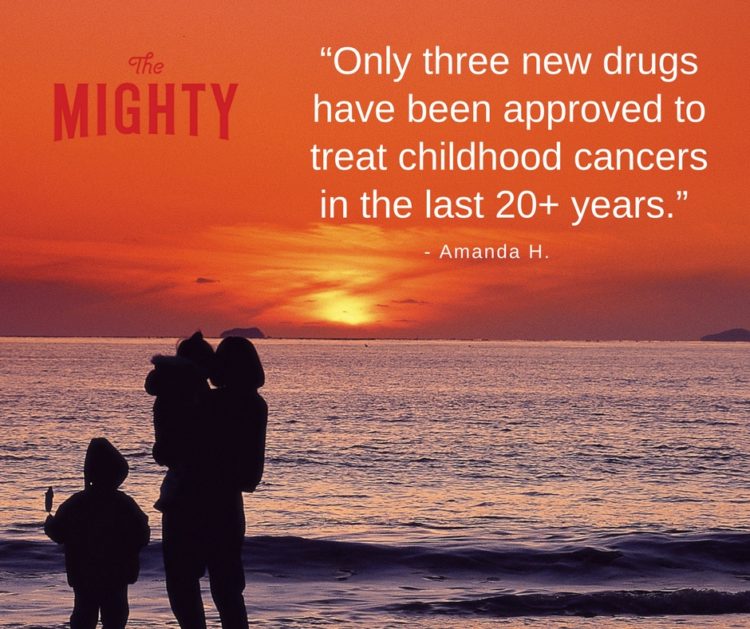
15. “PTSD is real after your child is diagnosed with cancer. For the child, the parents, the siblings. The fear and anxiety of relapse and losing your child never ever goes away.” — Lisa S.
16. “One in five children diagnosed with cancer in the U.S. will not survive. For the ones who do, the battle is never over.” — Jan K.
17. “Based on the most recent statistics, somewhere in the world a child is diagnosed with cancer every two minutes, every single day. (And to reiterate: childhood cancer is not rare.)” — Myla K.
18. “46 kids are diagnosed every school day in America!” — Cindi B.
19. “Average age of death for a child with cancer is 8 years old.” — Rally Pensacola
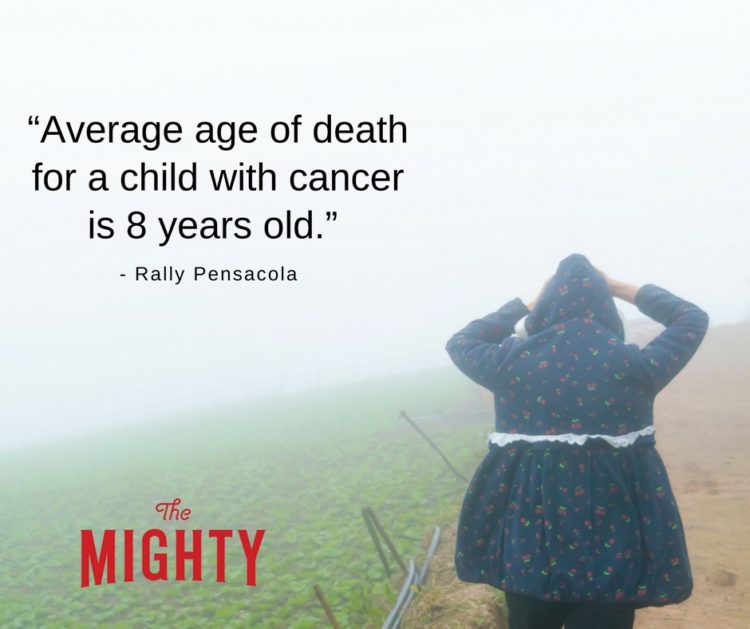
20. “For the vast majority of people, it’s easy to ignore numbers and pictures, and to close your eyes to the things in the world you don’t want to see. Cancer doesn’t have a face or a name, until it’s yours or someone you know. My childhood cancer wake-up call came when I was 22 years old, just starting my life out, seeing another 22-year-old with terminal relapsed Ewing sarcoma. I was starting my life, he was on hospice care because there were no further options to save his. Forget the numbers. Talk to the parent, grandparent, caregiver or a survivor of childhood cancer. That’s the reality check people need to see.” — Briana S.
What critical fact about childhood cancer would you add to the list? Share your suggestion in the comments below.
Thinkstock photo by Yusuke Okada/amanaimagesRF

